As plant-based diets become increasingly popular, more people are making the switch to vegan alternatives. If you’re planning on incorporating more plant-based substitutes into your diet, why not start off with some plant-based milk?
Apart from being the eco-friendly option, it offers a much-needed substitute for those with lactose intolerance, or dietary preferences, and is fairly easy to source as well. From almond milk, to rice milk, and the increasingly popular oat milk, pick the plant-based milk that’s just right for you!
Coconut Milk
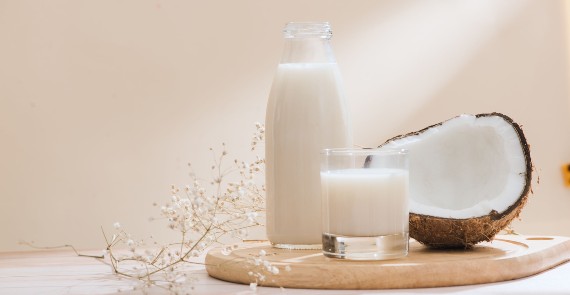
Not to be confused with its watery counter-part, coconut milk is creamy, delicious, and packed full of good fat, phosphorus, iron, magnesium, and other nutrients. Apart from being a foundation ingredient in your favourite Thai curry, coconut milk offers up a fantastic solution if you’re trying to create vegan desserts, thanks to its emulsive properties. Just make sure you practice portion control when using coconut milk as a substitute, as it has a higher level of saturated fat compared to other plant-based options.
Macadamia Milk

The perfect option if you’re looking for a non-GMO, gluten, and soy-free nut-based milk, macadamia milk may be new to the market, but its rich flavor, and low-calorie count-- about 70 calories per a 240 ml serving-- has resulted in its fair share of fans. Rich in omega 3 and omega 6 fatty acids, vitamin B1, and magnesium, macadamia milk is a great option if you’re trying to make an effort to cut the carbs in your life.
Soy Milk
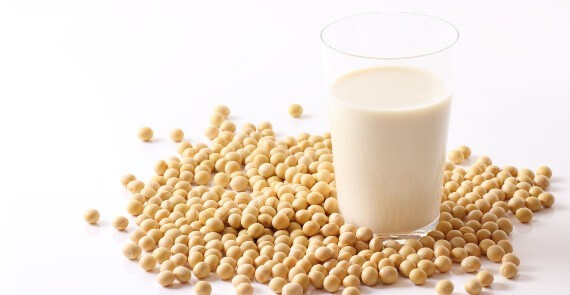
One of the earlier entrants onto the plant-based milk scene, soy milk is created from whole soy beans or soy flour – you can even make your own! Thanks to its creamy mouthfeel, and pleasant aroma, soy milk has become an extremely popular substitute to its dairy counterpart. Apart from flavonoids, with antioxidant, and cardioprotective properties, soy milk is also rich in protein, and is the most nutritionally similar to low-fat cow’s milk.
Oat Milk
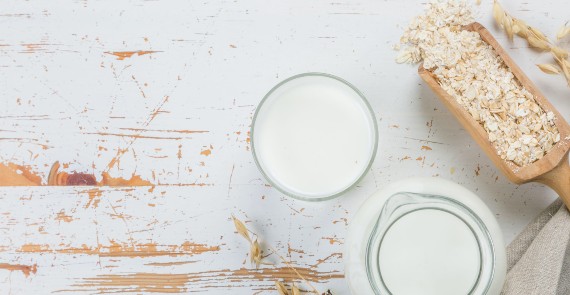
Oat milk has successfully integrated itself into mainstream popularity ever since it sprang up as a fantastic vegan alternative, and you can find it anywhere from department stores to Starbucks. Made by blending oats with water and straining out the liquid, oat milk is also lactose, soy, nut, and, even gluten-free—if you use a certain type of oats—so it’s great if you have any allergies. On the nutrition side of things, oat milk is full of B vitamins, and beta-glucans, a soluble fibre which can have benefits for you heart. Just keep an eye out for high sugar content in certain commercial oat milks.
Almond Milk
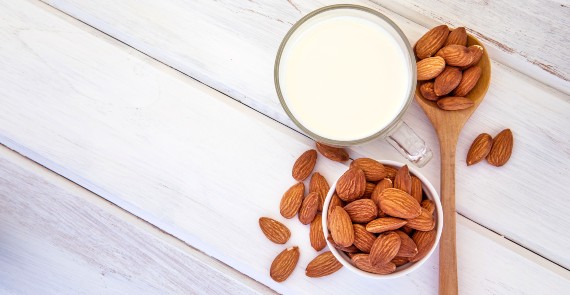
Popular for its creamy texture, and nutty flavour, almond milk is also lower in calories than cow’s milk—240 ml contains around 30-50 calories. Almond milk is high in vitamin E, just one cup contains about 20-50% of your daily vitamin E requirement, and is low in phosphorous and potassium, making it suitable to consume if you have a chronic kidney disease. Almond milk is also usually fortified with calcium and vitamin D.
Rice Milk
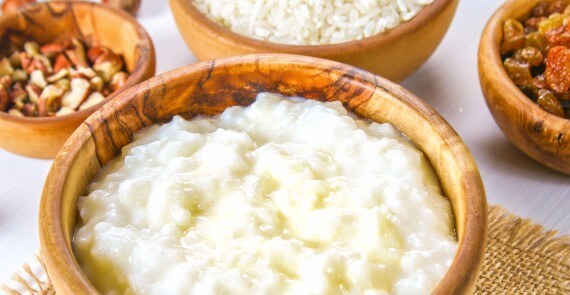
Rice milk is usually made from brown rice or brown rice protein, which is then blended and filtered, and is mild and naturally sweet flavoured. If you’re allergic to soy, nuts, lactose, or gluten, rice milk is a great substitute, although you should be weary of its high carb content. Commercial brands of rice milk are also usually fortified with calcium, vitamin B, and iron. Rice milk can also contain high levels of inorganic arsenic, so make sure you do your research before you pick up a carton.
Tips On What to Look Out For
If you’re new to the plant-based scene, you should be careful when considering what plant-based milk brands to buy. However, some brands have some pretty unhealthy ingredients, so here are a few things you should look out for, before your weekly milk shop.
Water Content
Some plant-based milks contain more water than others. For example, almond milk is about 85-99% water. Around 72 almonds may be used to make one cup of homemade almond milk, while for commercial almond milk that number may only be 5 to a cup, so it may be a better option to just make your own.
Sugar Content
While labels might not outright contain the words white sugar, keep an eye out for cane juice, cane sugar or cane syrup, as this is just a sugar substitute. Try to opt for unsweetened, unflavoured varieties. You can add your own healthy sweetener like raw coconut nectar, if you’ve got a bit of a sweet tooth.
Nutritional Profile
Try to keep an eye out for plant-based milks which are close to the same nutritional profile that cow’s milk has. Most plant-based milks are fortified with calcium, vitamin D, omega 3 fatty acids, and more, so you can make up for any vitamin deficiencies in your diet.
Additives
In order to mimic the texture of milk more successfully, commercial plant-based milks can have additional ingredients like xanthan and guar gum to thicken their milks. These additives can be difficult to digest and lead to more serious issues like colitis.









